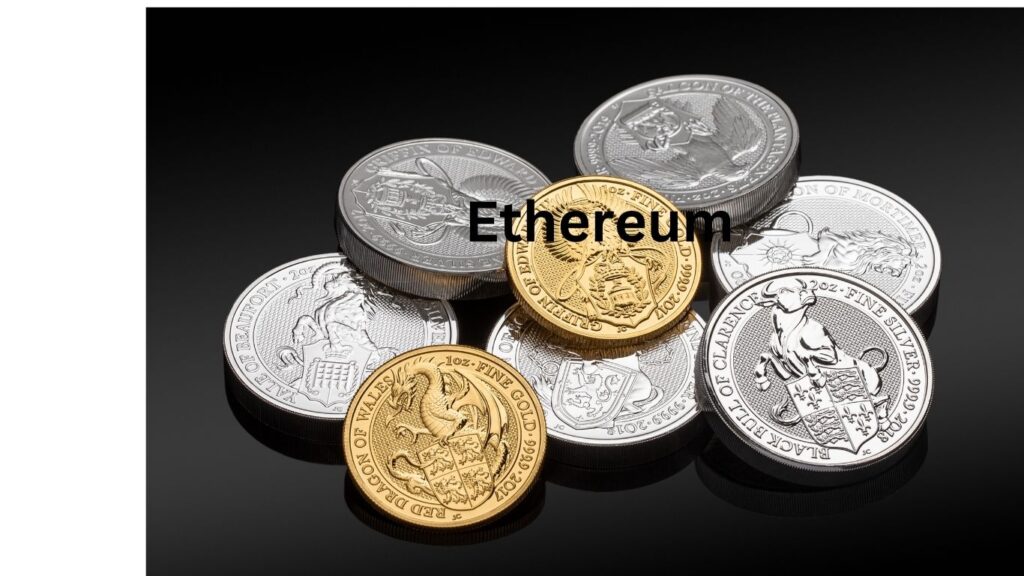In recent years, cryptocurrencies have emerged from the shadows of the financial world, transforming the way we think about money, transactions, and even the very concept of value. What began as a niche technology pioneered by enthusiasts has burgeoned into a global phenomenon, attracting investors, businesses, and everyday consumers alike. But what exactly is cryptocurrency, and why should you care? In this comprehensive guide, we’ll demystify the intricacies of cryptocurrency, exploring how it works—from the blockchain technology that underpins it to the various types of digital currencies available. We’ll also delve into the implications of this revolutionary financial system, examining its potential to reshape economies, enhance privacy, and empower individuals in ways traditional currencies never could. Whether you’re a curious newcomer or someone looking to deepen your understanding, this post will equip you with the essential knowledge you need to navigate the exciting world of cryptocurrency.
What is Cryptocurrency:- meaning and defining
Cryptocurrency, sometimes called crypto-currency or crypto, is any form of currency that exists digitally or virtually and uses cryptography to secure transactions. Cryptocurrencies don’t have a central issuing or regulating authority, instead using a decentralized system to record transactions and issue new units.
What is Cryptocurrency ? It is a form of digital or virtual currency that relies on cryptographic techniques for security, making it nearly impossible to counterfeit or double-spend. Operating on decentralized networks based on blockchain technology, cryptocurrencies offer a level of transparency and security that traditional financial systems struggle to match. As we delve into the fascinating world of cryptocurrency, we will explore its origins, how it works, and the potential it holds for the future of global commerce, investment, and even everyday transactions. Whether you’re a seasoned investor or a curious newcomer, understanding cryptocurrency is essential in today’s digital age. Join us as we unravel the complexities of this revolutionary financial tool that is capturing the attention of millions around the globe.
As the leaves fall and the air turns crisp, November 29th beckons with the promise of celebration and joy. Whether you’re planning an intimate gathering or a grand bash, this special date is an opportunity to create unforgettable memories with friends and family. From whimsical themes to delectable treats, the right ideas can elevate your birthday party into a truly extraordinary experience. In this blog post, we’ll explore a treasure trove of creative concepts that will help you celebrate in style, ensuring that your birthday is filled with laughter, love, and a touch of magic. Get ready to be inspired by unique decorations, interactive activities, and delicious recipes that will make your November 29th celebration one for the books!
How does Cryptocurrency Work?
To truly understand how cryptocurrency works, it’s essential to delve into the underlying technology known as blockchain. Think of blockchain as a digital ledger or record-keeping system that operates in a decentralized manner, ensuring transparency, security, and immutability. Unlike traditional databases that are managed by a central authority, a blockchain is maintained by a network of computers, commonly referred to as nodes. Each transaction involving cryptocurrency is grouped into a block, which is then added to a chain of previous transactions, forming a continuous and unalterable record.
The process begins when a cryptocurrency transaction is initiated. This transaction is broadcasted to the network, where nodes compete to validate it through complex mathematical algorithms. Once a block of transactions is validated by a majority of nodes, it is added to the existing blockchain, making the transaction permanent and visible to all. This decentralized validation process enhances security, as it’s nearly impossible for any single entity to alter the data without the consensus of the entire network.
Moreover, blockchain technology employs cryptographic techniques to secure both the data and the identities of users. Each transaction is encrypted, and participants are identified through unique cryptographic keys, ensuring that funds remain secure and private. This level of security, coupled with the transparency of the blockchain, reassures users that their assets are protected from fraud and tampering.In essence, blockchain is the backbone of cryptocurrency, enabling peer-to-peer transactions without the need for intermediaries like banks. This not only reduces transaction costs but also empowers individuals with greater control over their financial assets. As the technology continues to evolve, its potential applications extend far beyond cryptocurrency, promising innovations in various sectors such as supply chain management, voting systems, and digital identity verification. Understanding blockchain is crucial for anyone looking to navigate the world of cryptocurrency effectively.
Cryptocurrency Example:-
1)Bitcoin :-Founded in 2009, Bitcoin was the first cryptocurrency and is still the most commonly traded. The currency was developed by Satoshi Nakamoto – widely believed to be a pseudonym for an individual or group of people whose precise identity remains unknown.
2) Ethereum :-Ethereum is the name of the network. “Ether” is the native cryptocurrency token used by the Ethereum network. That said, in day-to-day usage most people call the token “ETH” (or just “Ethereum”). As a way of sending, receiving, or storing value ETH works much like Bitcoin.
3)Litecoin:-Based on historical performance and expert opinions, Litecoin has the potential to experience significant growth in the coming years. However, it is important to approach cryptocurrency investments with caution and conduct thorough research before making any decisions.
4)Ripple:- Ripple is a blockchain-based digital payment company that has created a network and protocol that uses the cryptocurrency XRP and the XRP Ledger. Ripple’s main focus is as a payment settlement asset exchange and remittance system, similar to the SWIFT system for international money and security transfers used by banks and financial intermediaries dealing across currencies.
Cryptocurrencies: A Look at the Most Popular Coins :-
Cryptocurrencies have taken the financial world by storm, revolutionizing the way we think about money and transactions. Among the myriad of digital currencies available today, several stand out due to their widespread adoption, unique features, and robust communities. Let’s take a closer look at some of the most popular cryptocurrencies that have captured the attention of investors and enthusiasts alike.
1)Bitcoin (BTC): Often referred to as the pioneer of cryptocurrencies, Bitcoin was created in 2009 by an unknown person or group of people using the pseudonym Satoshi Nakamoto. With its decentralized nature and limited supply of 21 million coins, Bitcoin has become the gold standard of digital currencies, often viewed as a store of value and a hedge against inflation. Its popularity has led to widespread acceptance, with numerous retailers and institutions now accepting it as a valid form of payment.
2)Binance Coin (BNB): Initially created as a utility token for the Binance cryptocurrency exchange, Binance Coin has grown significantly in value and utility. Users can use BNB to pay for trading fees on the platform, participate in token sales on Binance Launchpad, and even make purchases from select merchants. The Binance ecosystem continues to expand, further enhancing BNB’s role within the world of cryptocurrencies.
3)Cardano (ADA): Known for its strong focus on security and scalability, Cardano aims to create a more balanced and sustainable blockchain ecosystem. Launched in 2017 by co-founder Charles Hoskinson, Cardano uses a unique proof-of-stake consensus mechanism called Ouroboros, which is designed to be more energy-efficient than traditional proof-of-work systems. Its commitment to academic research and peer-reviewed protocols has garnered a dedicated following and a reputation for reliability.
4)Solana (SOL): Solana is a high-performance blockchain that boasts rapid transaction speeds and low fees, making it a popular choice for developers looking to build decentralized applications. Launched in 2020, Solana’s innovative architecture allows for thousands of transactions per second, positioning it as a strong competitor in the space. Its growing ecosystem of projects and collaborations has drawn significant interest from both developers and investors.
5)Ripple (XRP): Unlike many cryptocurrencies, Ripple is designed primarily for facilitating cross-border payments and improving the efficiency of traditional banking systems. By offering a unique consensus protocol, Ripple aims to provide faster and cheaper transactions compared to conventional methods. Its partnerships with major financial institutions highlight its potential to transform the global payments landscape.


How to buy Cryptocurrency
You may be wondering how to purchase cryptocurrency safely. There are regularly three steps included. These are:
Step 1: Choosing a platform
The to begin with step is choosing which stage to utilize. Generally, you can select between a traditional broker or committed cryptocurrency trade:
1)Traditional brokers. These are online brokers who offer ways to purchase and offer cryptocurrency, as well as other money related resources like stocks, bonds, and ETFs. These stages tend to offer lower exchanging costs but less crypto features.
2)Cryptocurrency trades. There are many cryptocurrency trades to select from, each advertising distinctive cryptocurrencies, wallet capacity, interest-bearing account choices, and more. Many trades charge asset-based fees.
Step 2: Financing your account
Once you have chosen your stage, the another step is to fund your account so you can start exchanging. Most crypto trades permit clients to buy crypto using fiat (i.e., government-issued) monetary forms such as the US Dollar, the British Pound, or the Euro utilizing their charge or credit cards – in spite of the fact that this shifts by stage.
Crypto buys with credit cards are considered unsafe, and a few trades do not bolster them. A few credit card companies do not permit crypto exchanges either. This is since cryptocurrencies are profoundly unstable, and it is not fitting to hazard going into debt — or possibly paying tall credit card exchange expenses — for certain assets.
Some stages will too accept ACH exchanges and wire exchanges. The accepted installment methods and time taken for stores or withdrawals vary per stage. Similarly, the time taken for stores to clear changes by payment method.
An vital figure to consider is expenses. These incorporate potential store and withdrawal exchange fees also exchanging expenses. Expenses will shift by installment strategy and stage, which is something to research at the start.
Step 3: Placing an order
You can place an order by means of your broker’s or exchange’s web or portable stage. If you are arranging to purchase cryptocurrencies, you can do so by selecting “purchase,” choosing the arrange sort, entering the sum of cryptocurrencies you need to buy, and confirming the arrange. The same handle applies to “offer” order
There are moreover other ways to invest in crypto. These incorporate payment services like PayPal, Cash App, and Venmo, which allow clients to purchase, offer, or hold cryptocurrencies. In expansion, there are the taking after venture vehicles:
Bitcoin trusts: You can purchase offers of Bitcoin trusts with a normal brokerage account. These vehicles deliver retail investors presentation to crypto through the stock advertise.
Bitcoin common stores: There are Bitcoin ETFs and Bitcoin shared reserves to select from.
Blockchain stocks or ETFs: You can more over in a roundabout way contribute in crypto through blockchain companies that specialize in the innovation behind crypto and crypto exchanges. Then again, you can purchase stocks or ETFs of companies that utilize blockchain innovation.


Once you have obtained cryptocurrency, you require to store it securely to secure it from hacks or robbery. As a rule, cryptocurrency is stored in crypto wallets, which are physical gadgets or online program utilized to store the private keys to your cryptocurrencies safely. A few trades give wallet administrations, making it simple for you to store specifically through the stage. In any case, not all trades or brokers naturally give wallet services for you.

Related Tools
AS SEEN ON:
Languages
Contact Us
support@smallseotools.com
Address
438, Streatham High Road
London, UK.
SW16 3PX
AI Writing GeneratorsPlagiarism CheckerAI Essay WriterAI WriterAI Text GeneratorTitle GeneratorParagraph GeneratorEssay Title GeneratorPlot GeneratorThesis Statement GeneratorAI Story GeneratorConclusion Generator
Terms of ServicesTestimonialsContact UsAbout usAdvertisePrivacy
Refund PolicyBlogFAQsPricingDesign StudioSitemap
You May Like Our Most Popular Tools & Apps
Subscribe to our Newsletter & Stay updated
Copyright © 2012-2024 by SmallSEOTools.com All Rights Reserved.














